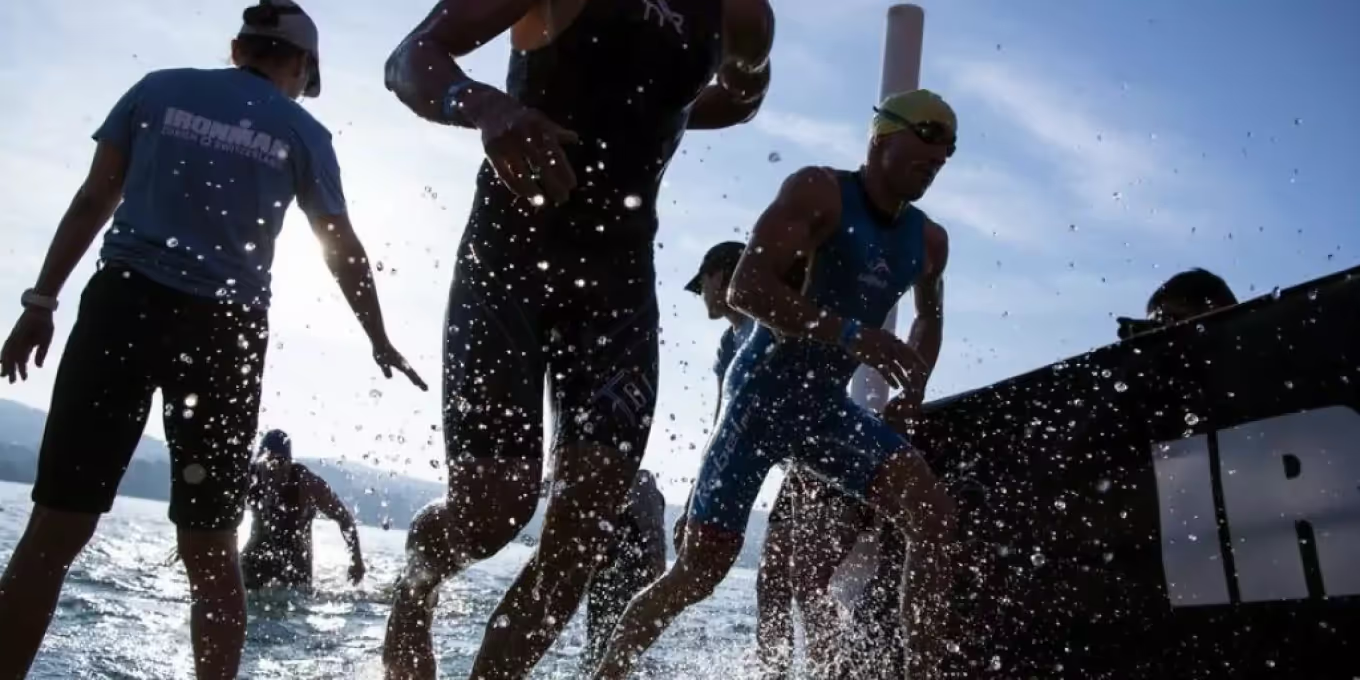Mental strength and stamina in triathlon: an interview with Ronnie Schildknecht
In triathlon, mental strength, stamina and pain management are crucial in addition to physical fitness. Read our full interview with Ronnie Schildknecht to find out more about his strategies and experiences.
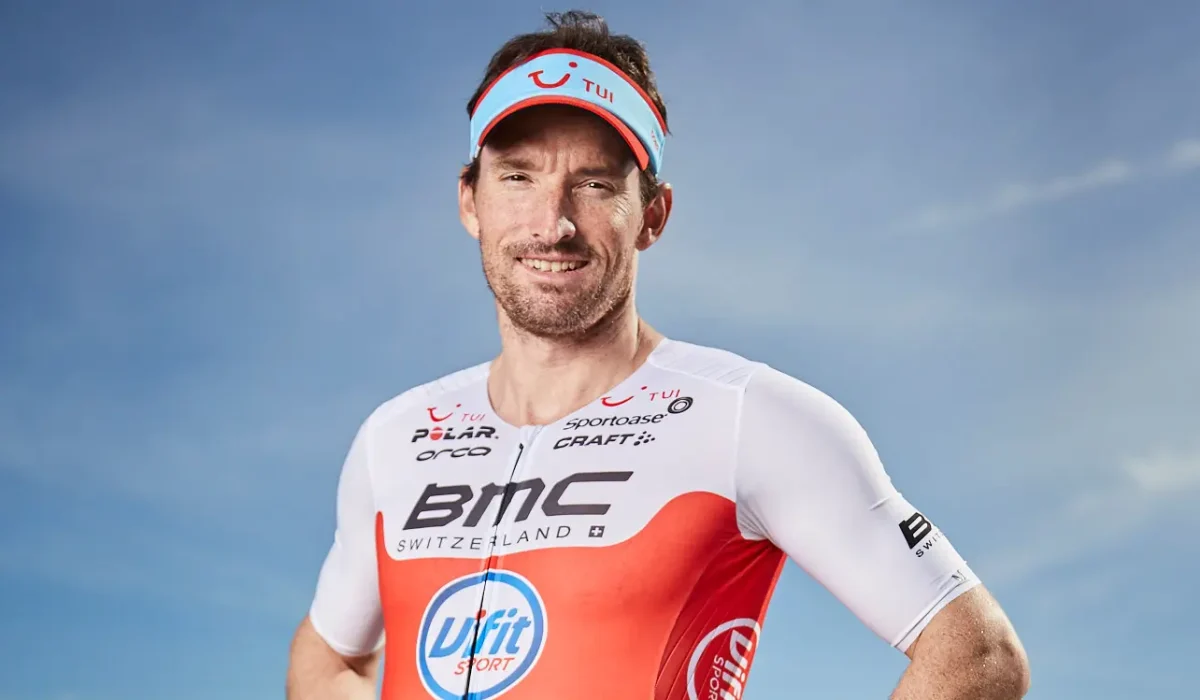

Mental strength
Positive thinking focus
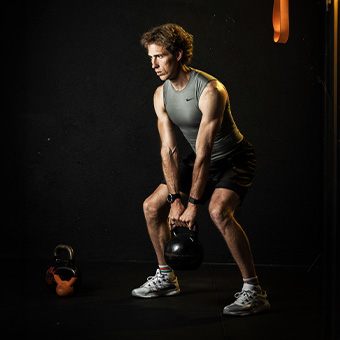
Triathlon
Swimming, cycling, running
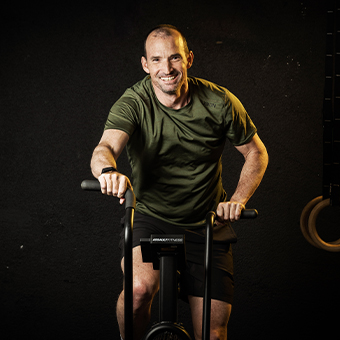
Exclusive interview
with Ronnie Schildknecht
With the start of the Olympic Games, the triathlon is once again taking center stage in international sport. This fascinating endurance discipline, which combines swimming, cycling and running, demands exceptional versatility and endurance from the athletes. The Olympic distance in the triathlon, which is held at the Games, comprises a 1.5 km swim, 40 km bike ride and 10 km run. This distance is a demanding challenge for both amateur and professional athletes. However, many athletes strive for even greater challenges, such as the Ironman course, which consists of a 3.8 km swim, 180 km bike ride and a final marathon run of 42.2 km.
In the midst of this exciting time, we had the opportunity to talk to Ronnie Schildknecht, one of Switzerland’s most successful triathletes. Ronnie has made a name for himself not only through his physical achievements, but also through his mental strength. He has established himself as an outstanding athlete, particularly in the Ironman triathlon. In this interview, he shares his insights on the importance of mental preparation, dealing with pain and the stamina required to succeed in this demanding sport.
Ronnie, before you came to triathlon, you had a varied sporting background.
Can you tell us more about it?
Ronnie Schildknecht: Yes, I was involved in various sports for a long time and played a lot of tennis and ice hockey. It wasn’t until I was about 20 years old that I discovered duathlon and triathlon for myself. Since I was already good at running and cycling, it was easier for me to get started in these disciplines. Swimming, on the other hand, was a challenge, which is why I initially focused more on duathlon, as I wasn’t yet competitive in triathlon. Over time, I improved my swimming, and the transition to triathlon became clear—especially if you want to pursue the sport professionally. Although I remained strong in duathlon, triathlon became my main focus because it offered a better chance to make a living. Even before my triathlon career, I trained 10-15 hours per week, which increased to 20-30 hours when I dedicated myself fully to triathlon.
20-30 hours a week – that’s an impressive amount of training.
Triathlon is known to be an extremely demanding sport.
How important is mental strength for a successful triathlete?
Ronnie Schildknecht: I certainly wasn’t the athlete who trained the most. There were always other athletes who trained even more. However, mental strength is absolutely crucial in triathlon. You need to be able to stay focused for many hours and push through difficult phases. There are always moments during a race when your body starts to fail or your energy wanes. This is where the mental aspect comes into play: you need to learn how to manage these crises and stay positive. Before each race, I would imagine different scenarios that could happen and think about how I would respond. This preparation provides a sense of security and helps you stay calm and find solutions in stressful situations.
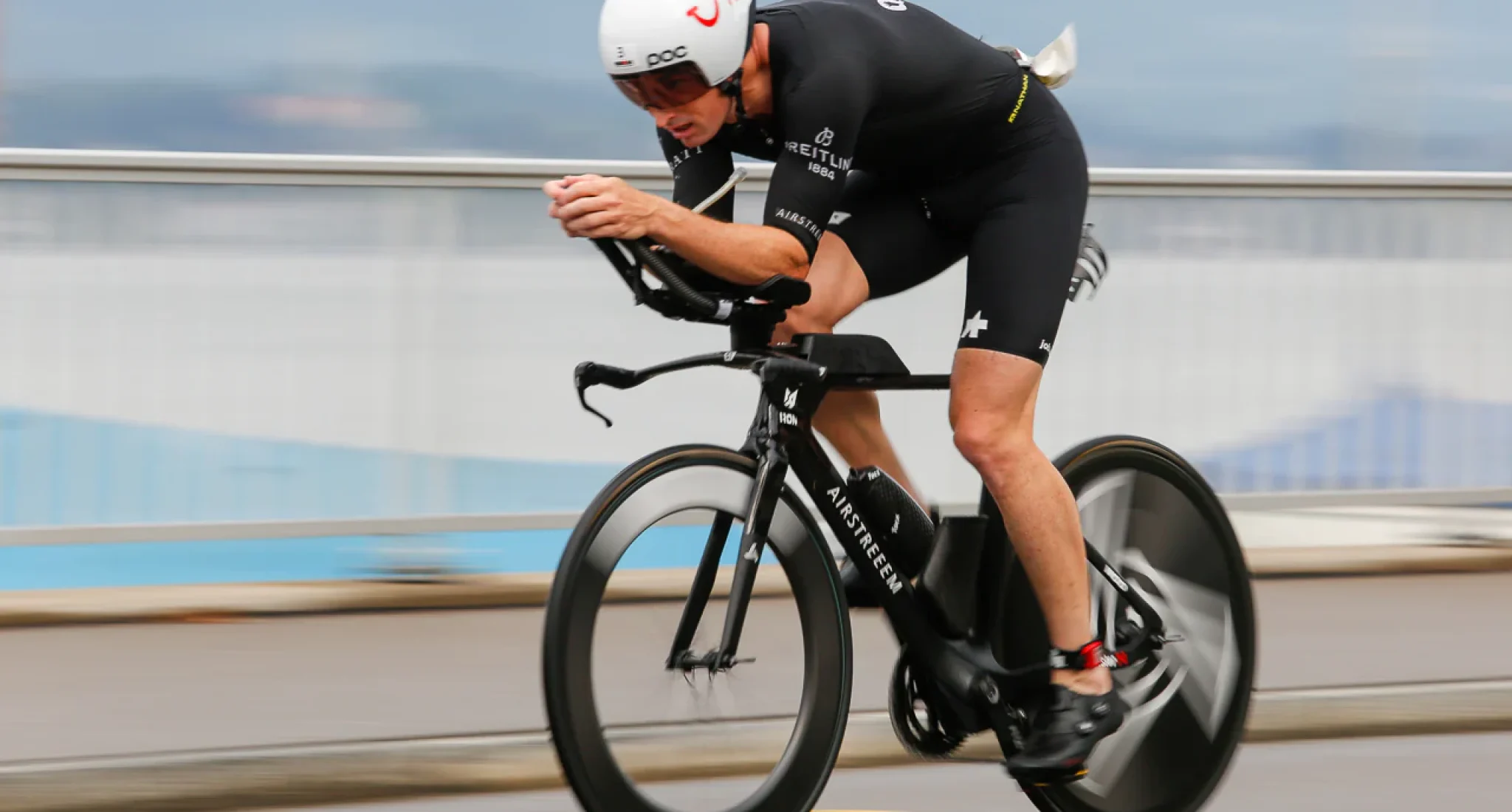
What does crisis management mean in triathlon and how do you implement it?
Ronnie Schildknecht: Crisis management means being prepared for the inevitable low points that can occur during a long race. This could be a physical setback, such as a cramp or a lack of energy, or a mental crisis where you feel like you can’t go on. The key is not only to anticipate these situations but also to have concrete strategies to deal with them. This might involve using specific breathing and relaxation techniques or motivating yourself with positive thoughts. It’s about remembering why you’re doing this and appreciating the small successes along the way.
How do you stay focused and mentally strong for eight hours?
Ronnie Schildknecht: It’s a big challenge to stay focused over such a long period of time. One method that has helped me is to mentally play through the competition beforehand. I imagine how I will cope with the different phases of the race, from the excitement at the start to the highs and lows during the competition and the feeling of crossing the finish line. This mental preparation helps you to be less surprised or overwhelmed during the race itself, as you have already been in these situations mentally.
Another crucial element is “positive thinking.” This involves focusing on the positive aspects of the race and your progress, even when things aren’t going smoothly. It helps to remind yourself of the enjoyment you get from the sport and to celebrate small achievements. For example, you might tell yourself, “I handled that section well” or “I have the strength to push through.” Maintaining this positive mindset can be a powerful motivator and keeps you focused on your goals.
You often talk about “suffering” in competition. What does that mean to you?
Ronnie Schildknecht: Suffering is simply part of triathlon. It’s a controlled ordeal that you overcome through training and preparation. In 2017, I achieved one of my fastest times at Ironman Texas, namely 7 hours, 56 minutes and 21 seconds. That was a tough achievement that required a lot of training and endurance. The competition itself can be very painful, much like a long day at the office, which many people find tiring. It’s about fighting through difficult phases and staying focused. I have come to accept and even appreciate this kind of suffering because it is part of the process of improving. Ultimately, it’s all a question of focus: my focus was on professional sport. In addition to hard training and talent, you also need to be willing to suffer in order to achieve times under 8 hours. When you have a goal in mind, be it in your working career, in sport or in any other field, it is crucial to maintain this focus and accept the challenges that come with it.
How do you deal with physical problems and pain that occur during training and competitions?
Ronnie Schildknecht: I also had certain physical problems. My back, for example, was a weak point, as was the area around my buttocks. I learned to deal well with pain, especially during the competition. There were moments when I was in pain and still managed to win. I crashed once and still managed to win the race. That’s when I’m fully the competitor; I can subordinate everything else. That may not always be healthy, but it hasn’t put me at a disadvantage. It’s important to take measures during training to look after your body, such as massages or sufficient rest. Even if you would like to train more, you sometimes have to take it easy to avoid injury or overtraining.
How important is it to listen to your body and avoid overtraining?
Ronnie Schildknecht: It’s very important to recognize the body’s signs and react to them. Overtraining can happen quickly, especially if you are constantly pushing yourself to the limit. It’s important to recover sufficiently and not just constantly increase the quantity of training. Today there are many technical aids that help to monitor the condition of the body, but ultimately you have to learn to listen to your own signals.
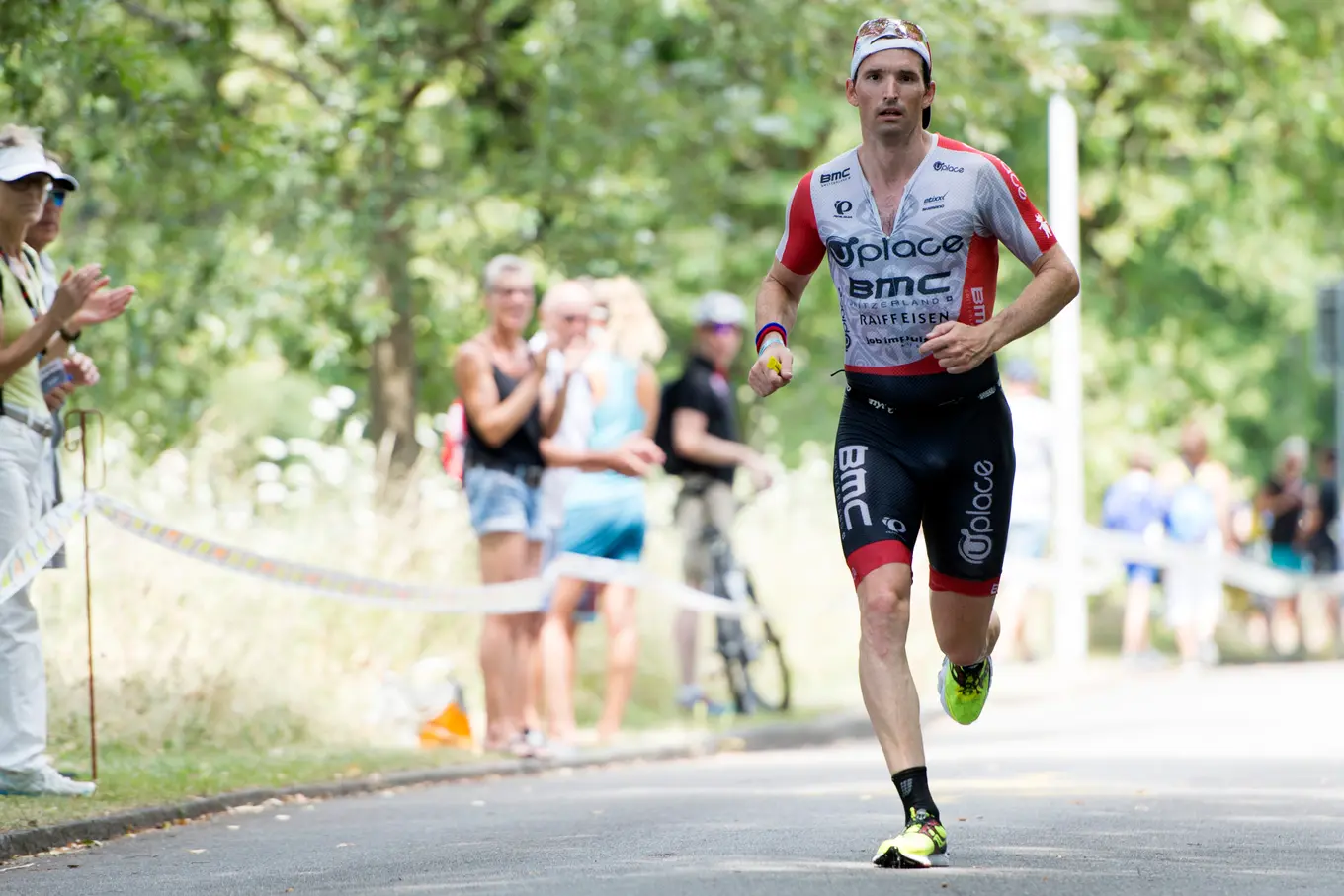
What role does nutrition play in this context?
Ronnie Schildknecht: In triathlon, nutrition is like the fourth sport. During training and competitions, I make sure I consume enough carbohydrates and electrolytes to have energy and avoid cramps. But it’s also important not to be too hard on yourself. You should treat yourself to something every now and then, as long as it remains in moderation. A balanced diet not only helps the body, but also the mind. However, mental strength, which I often refer to as the fifth sport, is just as important. It is just as trainable as physical strength and plays a key role in overcoming the challenges of triathlon.
What advice would you give to aspiring triathletes in terms of mental strength and stamina?
Ronnie Schildknecht: It’s important to be patient and enjoy the process. Triathlon is not just a physical test, but also a mental one. You have to be prepared to fight through difficult times and always think about the big goal. Everyone has their own challenges and it’s crucial to find your own path and accept that there will be ups and downs. The key is to never give up and always go one step further, even when it’s hard.
Another important piece of advice is to start slowly. Many newcomers have the ambition to start with an Ironman right away, but I recommend starting with shorter distances such as the Olympic distance. It makes sense to first familiarize yourself with the requirements and procedures of the triathlon. Then you can gradually build up and tackle longer distances, such as the half Ironman, before taking on a full Ironman. The body needs time to adapt to the strain and it is better to proceed step by step in order to be successful in the long term and avoid injuries.
Many people start with the Ironman right away, which is possible, but not ideal. It’s better to ease yourself into it and set realistic goals, such as a time of 16 hours or simply reaching your goal. I recommend training for triathlon for at least 1 to 1.5 years before taking part in a competition. You can also attempt an Olympic triathlon from a standing start, many people can still manage that. But you should prepare well for your first Ironman to give yourself the best chance of a successful and healthy finish.
Finally, how has your attitude towards mental strength developed over the years?
Ronnie Schildknecht: Over time, I’ve learned that mental strength is just as trainable as physical strength. It’s a skill that you can develop and improve. It’s not just about persevering, but also about acting wisely at the right moments and finding the right balance. The experience has helped me to strengthen my mental resilience and deal better with the challenges that triathlon brings.
Thank you very much, Ronnie, for the interview!
Editorial’s Note
Ronnie Schildknecht impressively demonstrates that triathlon requires far more than just physical fitness. Mental strength, stamina and the ability to deal with pain are essential components of his success. His experience and advice are invaluable not only for triathletes, but for anyone pursuing big goals. This is a valuable lesson for all aspiring triathletes: prepare not only physically but also mentally for the challenges of this demanding sport. Because only those who are prepared to train their mental stamina will be successful in triathlon – and in life – in the long term.
